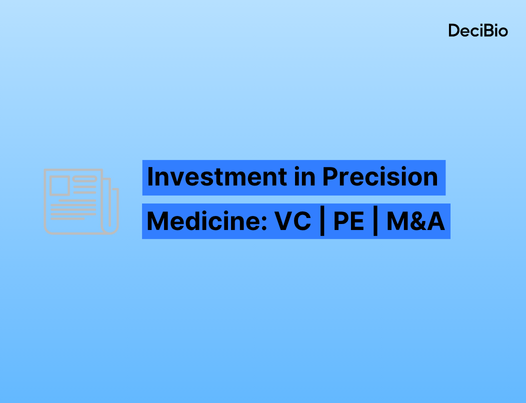With global interest in biotech and biopharma surging post-pandemic, regions beyond the US, EU, and APAC are emerging as high-growth areas. Notably, the Gulf states–and the UAE in particular–are becoming highly compelling players.
Uniquely positioned as a politically neutral economic powerhouse in the heart of the Middle East, the UAE is forward-thinking and committed to innovation. The Emirati Genome Program–a national initiative to map the DNA of every willing Emirati with the goal of providing personalized medical care–is a testament to this commitment (for more, see our genomics pricing blog post). While the UAE has the resources and demand to fuel a rapidly growing biopharma sector, it currently lacks the expertise of countries with more established biopharma sectors. To bridge this gap, the UAE is making strategic investments and forming public-private partnerships to attract scientists and biotech companies. The UAE’s rapid expansion in genomics is creating demand for advanced diagnostics like liquid biopsy, offering significant opportunities for companies developing these technologies to partner with local healthcare providers (for more, see our recent LBx market blog post and liquid biopsy newsletter on LinkedIn).
This blog post explores some of these partnerships and the economic and national factors that make the UAE’s precision medicine and biotech sectors so exciting.
Key Drivers for the UAE’s Biotech Sector
Multiple factors converge to make the UAE’s biopharma market appealing. It already has a well-established healthcare system with high expenditure, and its commitment to building a robust life sciences sector is clear: last year, the UAE allocated $1.3 billion (around AED 4.8 billion) for healthcare and community protection. Here are the main drivers of growth:
1. Growth-Friendly Economic Environment
The UAE is creating business-friendly free economic zones to encourage biotech companies to move to the UAE. These zones offer significant tax advantages, such as a 50-year exemption from personal, income, and corporate taxes. One example is Dubai Science Park (DuBioTech), the first free zone in the Middle East dedicated to the life sciences, and the new home of Virax Biolabs.
In an interview with Biospace, Virax Biolabs CEO James Foster described the UAE as “a massive growth opportunity” and highlighted the potential for investment, noting “they’re opening up capital markets. There’s all sorts of interest from all sorts of companies like ours to go over there and access funding, which is becoming more and more difficult to come by in Western countries”.
Other free economic zones in the UAE that are beginning to attract pharmaceutical and biotech companies include the Abu Dhabi Global Market (AGM) and the Khalifa Industrial Zone Abu Dhabi (KIZAD).
2. Streamlined Regulatory Environment
Another significant driver is the UAE's streamlined regulatory framework. While Western countries grapple with increasingly complex regulations—exemplified by the FDA's contentious handling of Laboratory Developed Tests (LDTs) (see our webinar and slides on the topic here)—the UAE offers a more straightforward path. Its recent adoption of global standards in clinical trials means that companies can quickly bring innovative diagnostics and therapies to market. This high degree of efficiency compared to the increasingly complex situation in the West is especially appealing for firms aiming to fast-track their regulatory strategies.
3. Demand for Novel Therapies
Increasing demand for novel therapies in the UAE and Saudi Arabia is driven by the rising incidence of chronic diseases. According to PWC, conditions like diabetes and cardiovascular disease are growing due to an aging population, urbanization, and lifestyle changes. This surge in chronic diseases creates new opportunities for clinical trials and drug development. Randolph Gordon, CEO of World Health Advisors, notes that “populations with distinguishing types of illnesses and genetics create new and unique clinical trial enrollment opportunities” (Biospace). These factors combine to make the UAE an attractive market for life sciences companies.
Investment Pays Off: Partnerships and Collaborations
The UAE’s commitment to becoming a global biotech hub is evident in its strategic partnerships and collaborations. One notable example is the April 2023 partnership between G42, an Abu Dhabi-based AI technology holding group, and Mubadala Investment Company, a global sovereign investor, to form M42. This new entity leverages G42 Healthcare’s AI expertise and Mubadala Health’s patient services to advance healthcare innovation.
Soon after, M42 partnered with AbbVie Biopharmaceutical to “advance personalized medicine and genomics,” according to the Abu Dhabi Department of Health. M42 is also a primary enabler of the Emirati Genome Project through its Omics Centre of Excellence, likely benefiting from AbbVie’s genomics expertise. Additionally, M42 signed an agreement with AstraZeneca to advance prevention of breast cancer through precision medicine. For companies looking to enter the UAE biotech market, forming strategic partnerships is crucial. Collaborating with local entities like M42, as AstraZeneca and other are doing, can provide invaluable insights into the regional landscape and accelerate market penetration.
Other significant developments include BridgeBio Pharma’s partnership with Burjeel Holdings to develop therapeutics for rare diseases. Its launch of operations in Abu Dhabi for clinical trials and research as part of Project ‘Nader’ exemplifies the growing number of partnerships emerging due to the factors discussed.
The UAE as an Emerging Global Hub: Biotech and Precision Medicine Conferences
As the UAE’s influence grows, it is establishing itself as a hub for biotech and precision medicine conferences. Key events in 2024 include(d):
- Medlab Middle East, February in Dubai - a major event focusing on laboratory and diagnostic innovation
- PrecisionMed Exhibition & Summit (PMES) for third edition, May in Dubai - annual UAE-based event
- ArabLab, September in Dubai - significant conference focused on laboratory technology
Looking Ahead
The UAE has positioned itself alongside other major non-Western biotech hubs including Seoul, Hong Kong, Shanghai, and Singapore. The influx of tech leaders from Silicon Valley into the Gulf underscores the growing recognition of the UAE's entrepreneurial energy and its potential as a global hub for technology-driven sectors. Companies that merge cutting-edge technology with biopharma—such as AI-driven drug discovery platforms or digital health solutions—are poised to capitalize on the UAE’s commitment to both tech and healthcare innovation.
While challenges such as the talent gap remain, they are rapidly being bridged. The UAE’s commitment to innovation, strategic investments, and forward-thinking policies give it the potential to not only transform its own healthcare landscape but also become a leader in the next wave of global health and tech innovation. However, it is still early days. It will certainly be fascinating to keep a watchful eye on how these developments unfold and what new opportunities they will create.
Note: DeciBio Consulting, its employees or owners, or our guests may hold assets discussed in this article/episode. This article/blog/episode does not provide investment advice, and is intended for informational and entertainment purposes only. You should do your own research and make your own independent decisions when considering any financial transactions.




.png)

.png)


